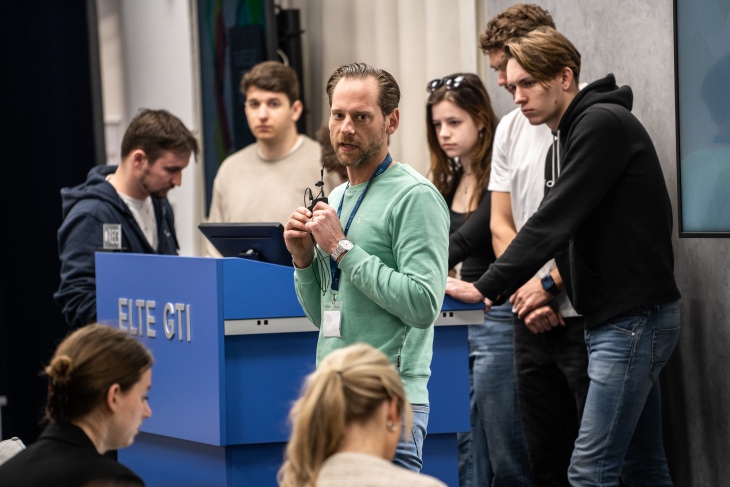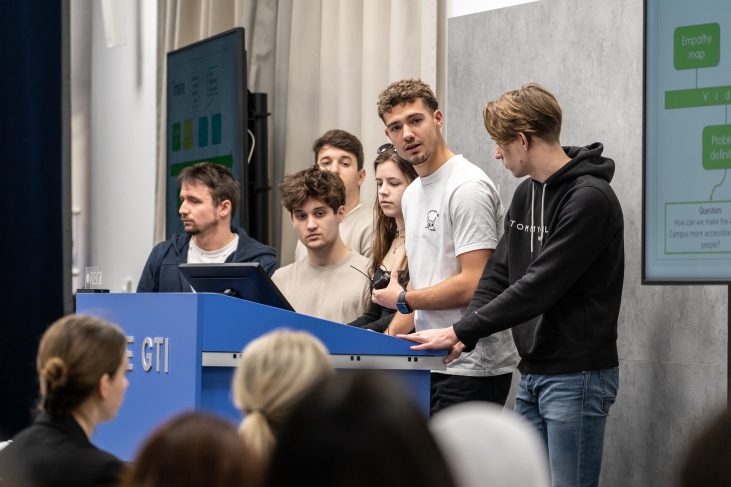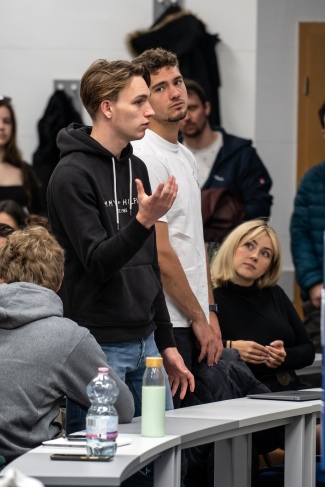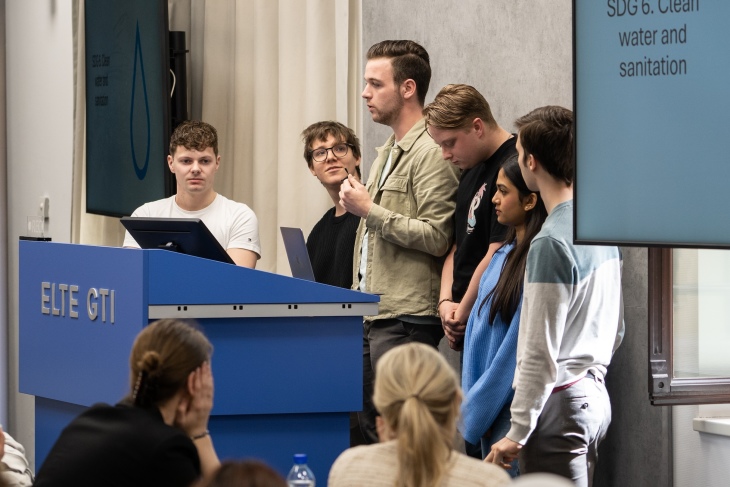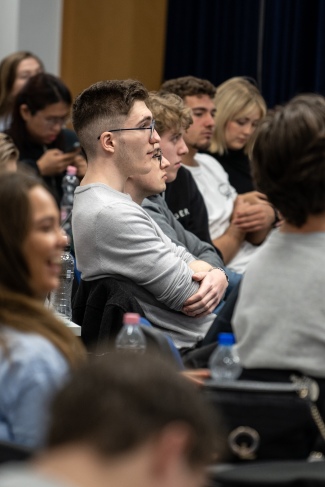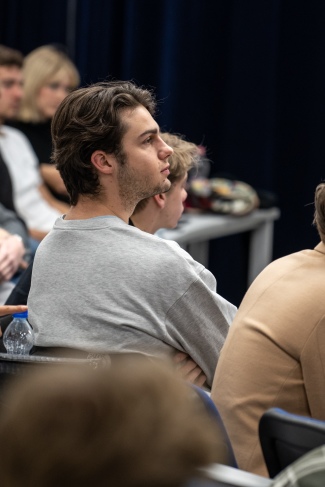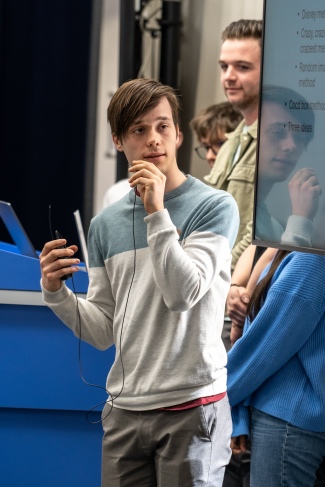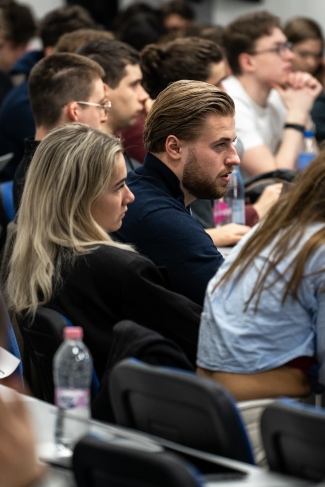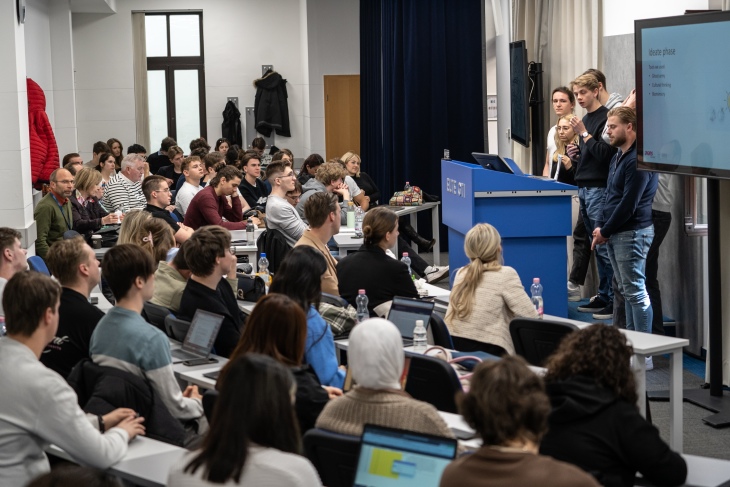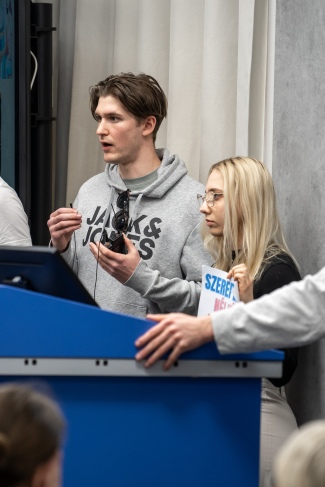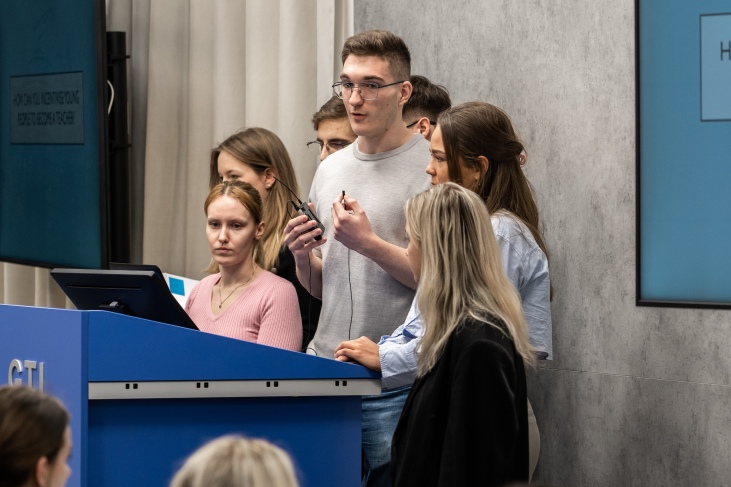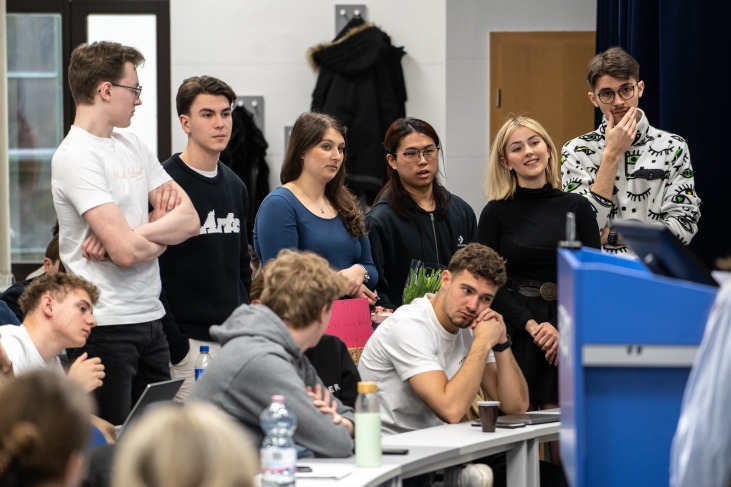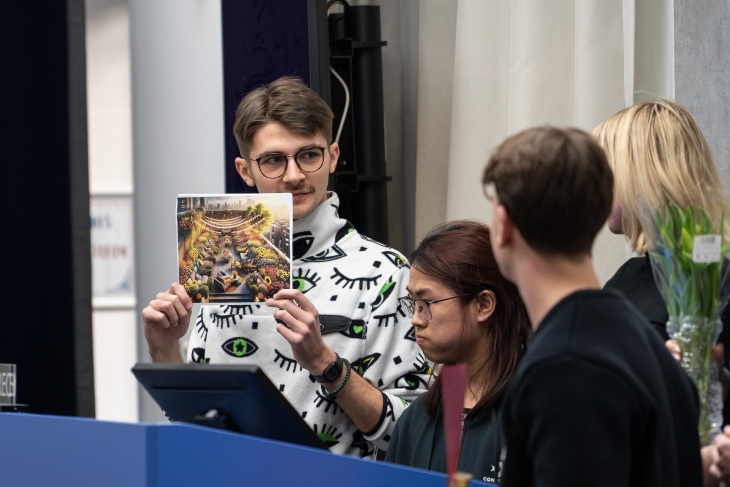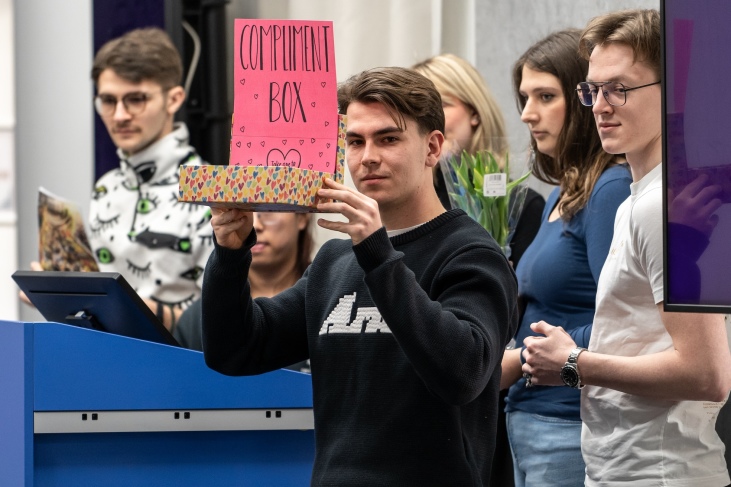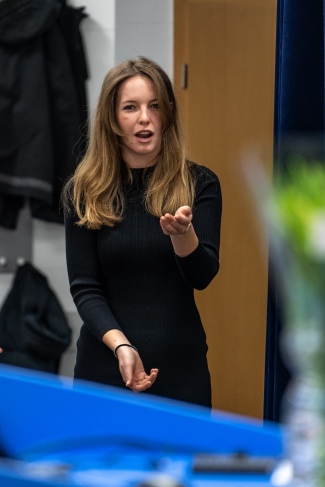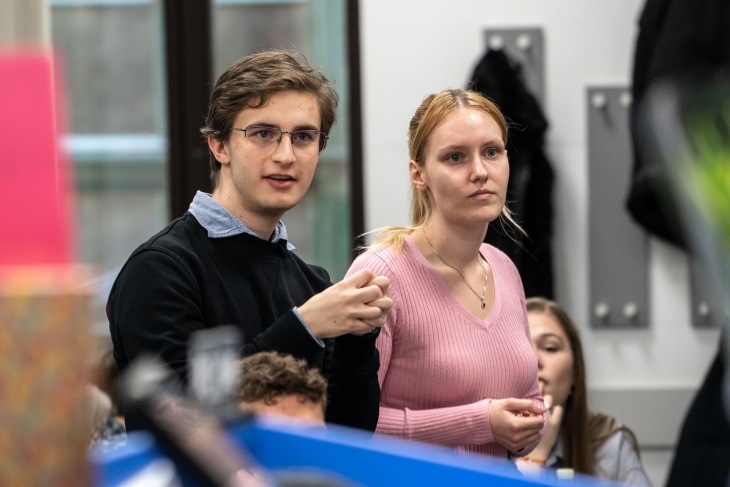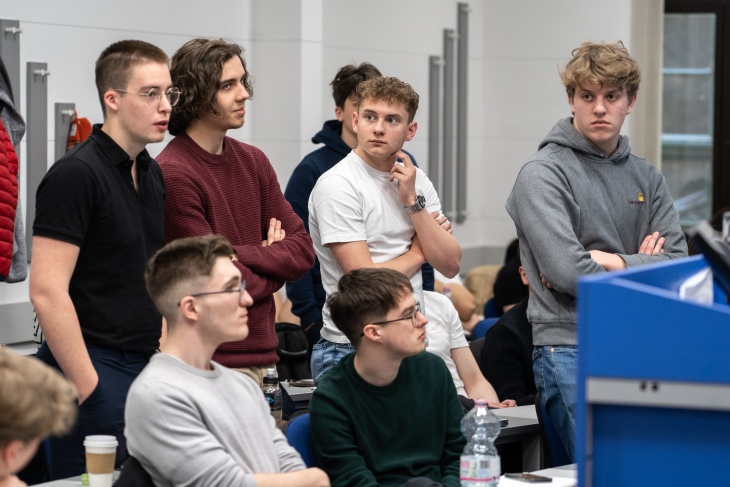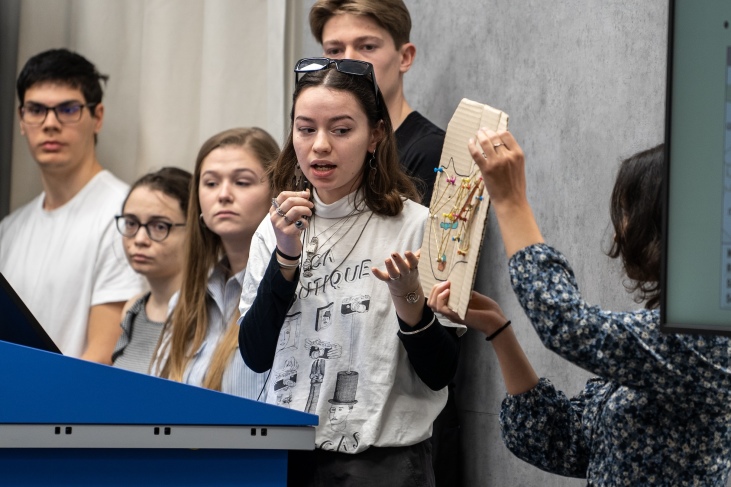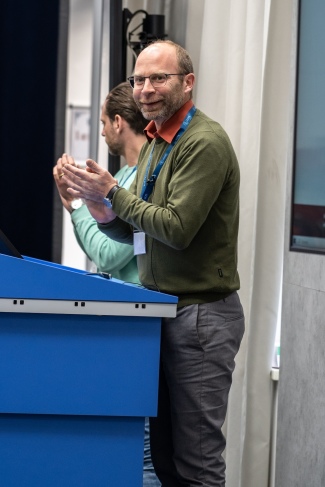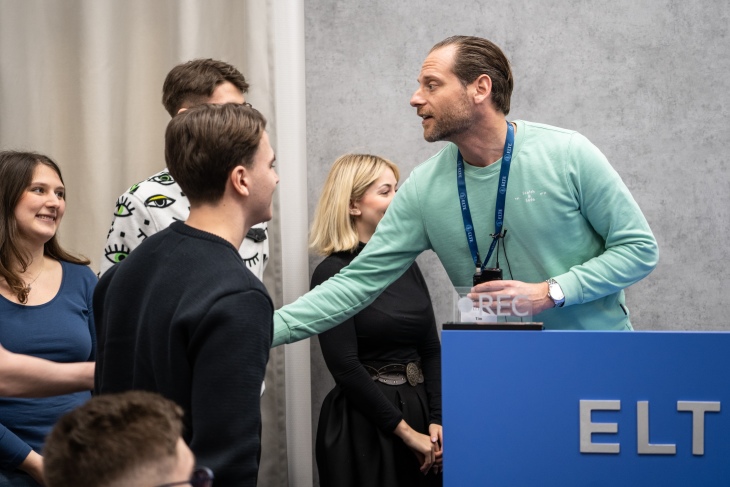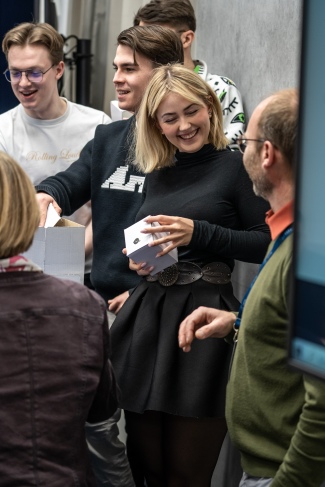Third Avans–GTK Hackathon in Budapest
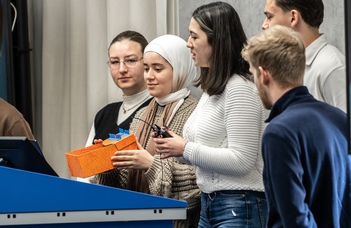
Hagar Sabek, a Stipendium Hungaricum scholarship student on ELTE GTK’s Finance and Accounting programme summarises why she found the three-day hackathon (a cardinal part of the free-elective course ‘Business Case Studies I’) an exciting and novel learning experience and why she is inviting others to join her in registering for the course again next year.
"After the short but intensive 3-day course has come to an end, I would like to share my insights about all the different activities and experiences I have encountered through this course.
However, first let me start by briefly introducing myself: I am Hagar Sabek, a second-year bachelor student majoring in Finance and Accounting. As part of my standard curriculum, I had to choose a free-elective course this semester, and this was when I came across the ‘Business Case Study I’ course and decided to register for it as it sounded atypical and fascinating.
The 3-day, 3-credit ‘Business Case Study I’ course, a collaborative hackathon between ELTE GTK and AVANS University (The Netherlands), focuses on solving problems related to the United Nations Sustainable Development Goals (UN SDGs). The goal of this course is to learn and understand a new way of problem solving and thinking called ‘Design Thinking’, but from my perspective, it was also a great way to meet new people and new cultures, work with them and make new friends!
Already during the Pre-Hackathon stage, we were assigned into groups along with our SDGs, which we had to research in advance. On the first day of the Hackathon, we met up with the Dutch students and professors and started off with some small activities in our groups lead by the Dutch professors to steer our thought process towards innovative, human-centred problem-solving. The Dutch students were incredibly helpful and guided us through the activities and Design Thinking phases while sharing their experience with us.
After the short introduction, we started discussing and finalising our SDG-oriented problem. It was fairly surprising how we were all able to quickly accommodate and come up with a problem that we collectively agreed on and hoped to see solved in the future. It was like we all already knew each other!
Later on, we exchanged problems with another group (our pair), and our group was assigned an SDG 9 problem related to industry, innovation, and infrastructure. We first defined our problem and came up with a single question ‘How can we accommodate more students in a sustainable and innovative way on the ELTE GTK (Trefort) campus?’.
We started working through the Design Thinking phases starting with the empathy map, which is a tool used in Design Thinking to visualise our thoughts, feelings, and actions. We carried out some interviews with students (the Dutch students even interviewed us!) to better understand their needs and opinions regarding the spaciousness of the lecture halls and the study lounges available around campus.
After a long day of teamwork, going around campus, and listening to one another's insightful ideas, we met up with the other group and the professors, and they provided us with continuous valuable feedback and constant support.
The next day, we started the Ideate phase, which was by far the funniest and most interactive phase of all. We had to come up with 75 different solutions to our problem. I was overwhelmed, to say the least, but the Dutch students reassured us and told us ‘The crazier the idea, the better’. They thankfully introduced us to the ‘MenuKaart’, a collection of resources and techniques designed by AVANS professors that helped us come up with our ideas. We explored a few techniques, but my favourite was the ‘gek, gekker, goed’ one, which is when we come up with an idea, make it crazier, make it even crazier, and then we have our final idea!
As part of our task, we soon started building our prototype, which was based on one of the ideas that we all agreed on. This was undoubtedly the most rewarding part; we could all see our ideas and visions coming together. Working with my team, where everyone was supportive, helpful, and dedicated, was truly a pleasure.
Finally, on presentation day, each group presented their Design Thinking journey and prototypes. It was intriguing to see the diverse and highly inspiring and promising solutions everyone came up with in such a short period of time across the different SDGs. My personal favourite was the group with SDG 3 (Good-Health and Wellbeing) who came up with a special solution called “The Compliment Box”. They circulated a box of compliment-filled papers throughout the room, surely bringing smiles to everyone's faces—a truly heart-warming, wholesome thought.
Throughout this course I acquired a strong base of the Design Thinking methodology that will surely benefit me in my future studies, lifegoals, and my career. It also helped me improve my communication, presentation, and teamworking skills. Personally speaking, this course made me realise how inevitable teamwork is and that together, we were able to come up with remarkable ideas.
While I genuinely enjoyed this course and would absolutely consider joining it again in future semesters, I wish the duration had been longer to allow more time to get acquainted with members of the other groups. Nevertheless, I would definitely recommend this course to anyone who is looking for a new and one-of-a-kind experience, full of excitement, teamwork, continuously learning new things, and most importantly meeting and working with new, supportive, hardworking, collaborative, and fun people who will make this experience even more enjoyable! In case you missed it this semester, don't worry; you can always register for the course next spring!"
Read Layla Gaziyeva’s account of the 2023 hackathon here.
2024 Avans–GTK Hackathon
2024 Avans–GTK Hackathon
0
/
0






















0
/
0


